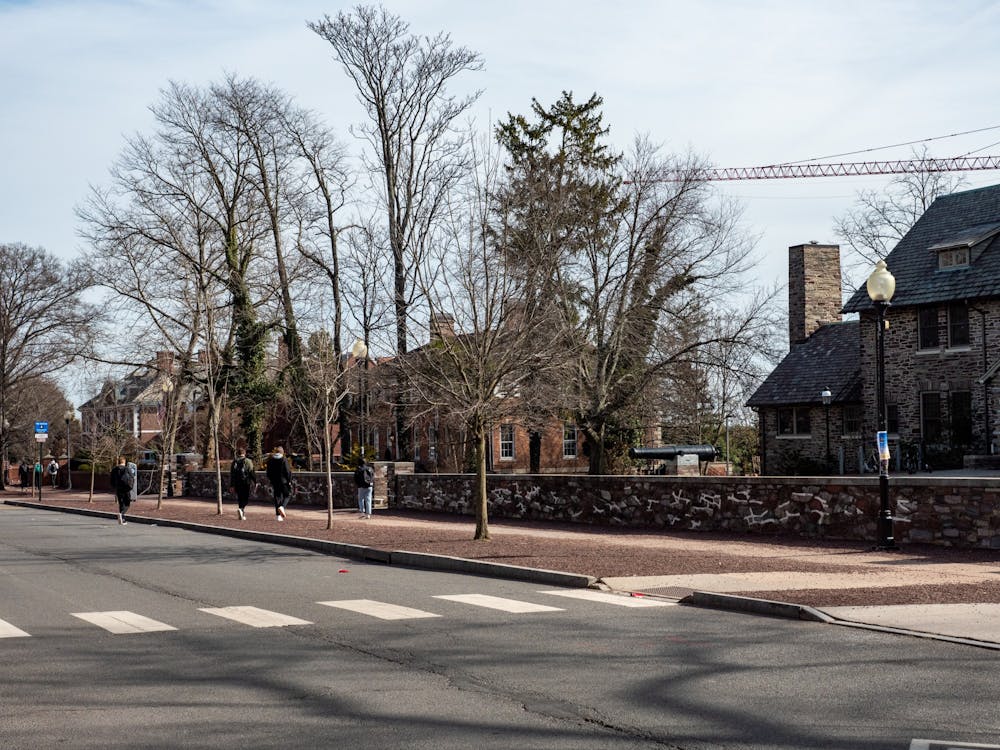At the Homecoming game against Harvard this Saturday, a plane bearing the message “Don’t Harvard our Princeton” soared over the football field. This is the slogan of a movement against the University’s changes to dining. But its critique of the University’s plan is limited: it revolves specifically around opposition to the new requirement for members of eating clubs and co-ops to purchase a $900 meal plan.
I certainly oppose any efforts to force students into purchasing something that they do not want. But if we focus only on the threat to eating clubs, rather than the University’s abolition of independent dining — a more immediate and costly change — we’re losing sight of the bigger picture. Alumni also need to mobilize against the eradication of independent dining, which will disproportionately affect lower-income students.
First of all, the elimination of independent dining primarily hurts students from lower-income families. According to data from the ‘Prince’ 2025 Senior Survey, 54 percent of independent respondents were on full financial aid, as opposed to 21 percent of respondents in eating clubs, which is less than the Class of 2025 as a whole, at 31 percent — indicating that students in eating clubs skew wealthier than the general student population.
But the dining changes for students in eating clubs actually slightly benefit those on financial aid — about 60 percent of eating club members, according to the 2025 Senior Survey. The new meal plan now allows these students to use their dining hall swipes for late meal and breaks — an option not currently available to these students, who are currently on their own when their clubs aren’t open.
The only students who are negatively affected by this change to eating clubs are students who receive no financial aid, who are generally going to be from households making over at least $350,000 a year, based on how Princeton calculates financial aid. For context, these are students from the top five percent of American households. Absent extenuating circumstances like substantial medical bills, $900 a year would be an insignificant sum for these students’ families.
If our response focuses on a small effect on an extremely affluent group of students, rather than its massive effects on a smaller but comparatively more underprivileged group of students, then our priorities are in the wrong place.
As a collective, Princeton’s eating clubs also have much more organizing power than independent students. There is an entire graduate and undergraduate Interclub Council which interfaces with the University’s administration, while independent students have no equivalent. Independent students need powerful advocates more than eating club members.
Given the removal of independent room draw, students on an incomplete plan risk being far from a kitchen, inconveniencing an affordable source of meals. In addition, the additional financial burden levied upon would-be independent students is much greater than that on eating club members. While eating club members who don’t receive financial aid will have to pay an additional $900, would-be independent students across income brackets will lose out on at least $4,500 if they elect to join the University’s cheapest plan, Block 160. Currently, independent students on financial aid receive direct payouts from the University of up to $10,520.

The issue of this sum is complex. Although students are technically supposed to spend their refunds only on food expenses, students have used funds leftover from their meals to help make ends meet elsewhere. As one independent full-aid anonymous submitted to Undergraduate Student Government in October: “The money I received back due to selecting independent was the difference between having the money to survive/thrive without a full-time job and not.”
While Princeton has been generous in allowing students to spend that money as they wish with zero oversight, the University understandably may wish to resolve this issue at some point in the future. If this occurs, independent students will need strong alumni representation to ensure their interests in feeding themselves — alongside supporting their families — are well represented.
The abolition of independent dining is simply a more pressing issue than the threat to the eating clubs. The latter problem is long-term — for now, the eating clubs are safe — and given the sheer popularity of eating clubs and strength of their support from robust graduate boards, the University faces a long, tough battle to incrementally wear down these clubs. This fight is certainly relevant, and deserves attention, but is not nearly as urgent as the abolition of an entire dining option. Eighteen percent of Princeton upperclassmen, or hundreds of people, have just lost their autonomy over where and how they eat.
Where are the planes, websites, and shirts for independent dining? Among the student population, there has been some resistance against the change — such as Guest Opinion Editor Jerry Zhu’s opinion against it. But there’s been no organized campaign for restoring independent dining.

Perhaps independent students feel disempowered. Perhaps it feels as though if they stand alone, they will certainly lose. After all, organizing a movement requires time and capital, which many independent students simply do not possess. But as we’ve seen from the “Don’t Harvard our Princeton” movement, Princeton’s alumni have the resources to organize a mass movement.
So if we’re going to push against the University’s changes to dining, we need to focus on all of these changes. Alumni need to stand up for those with fewer resources and resoundingly defend independent dining, too.
Raf Basas (he/him/his) is a sophomore opinion columnist from Elk Grove, Calif. intending to major in English. He can be reached at raf.basas[at]princeton.edu or @raf.basas on Instagram. All of his columns can be read here.








